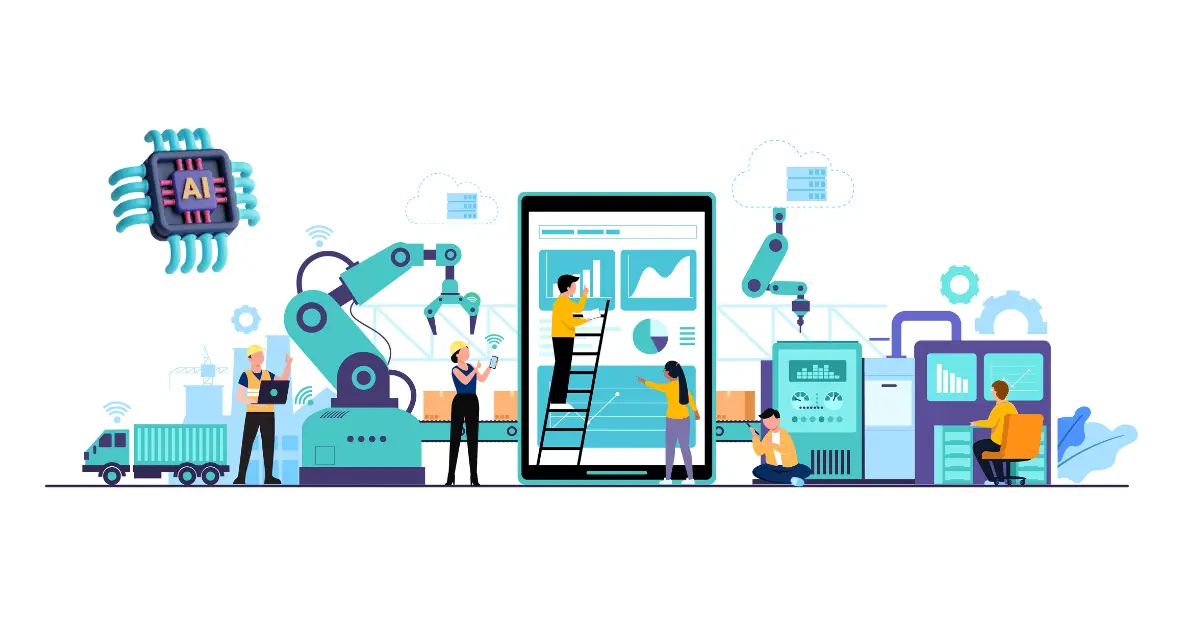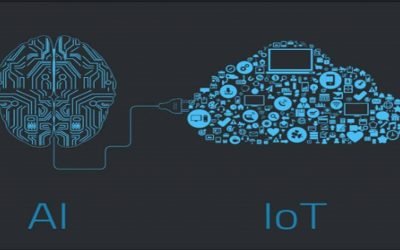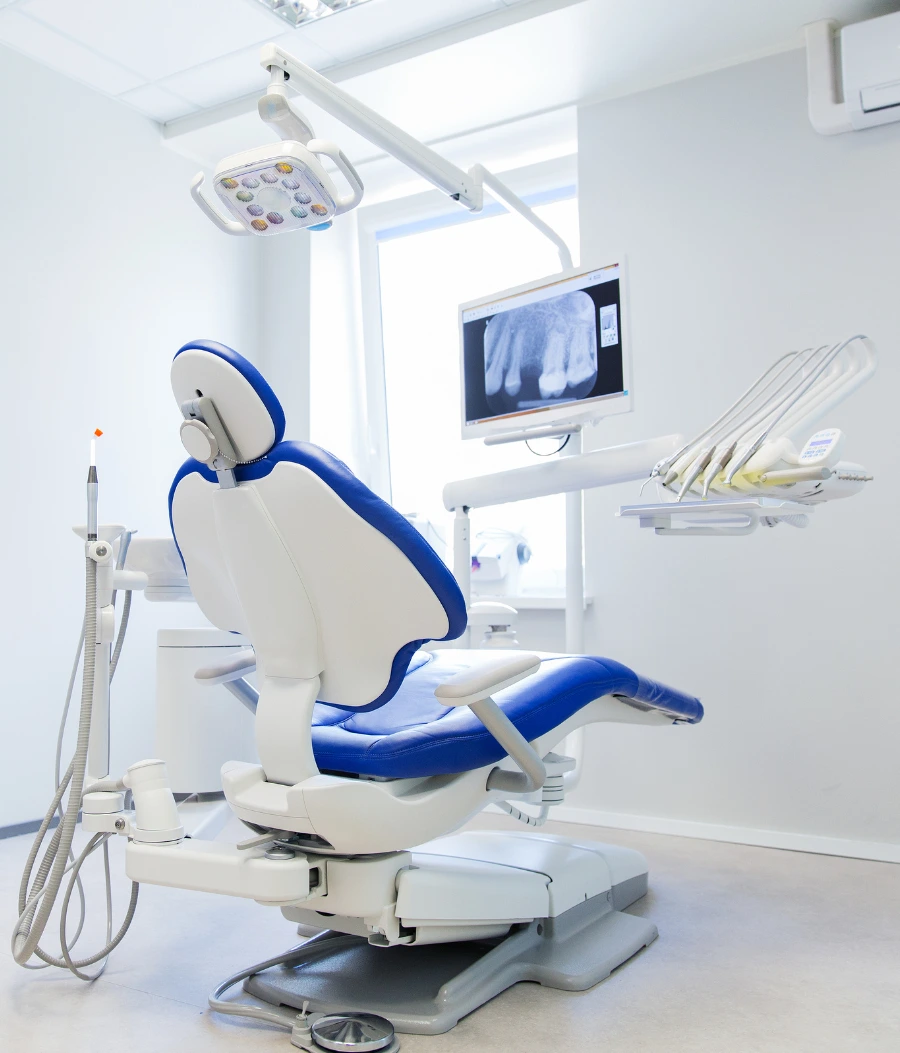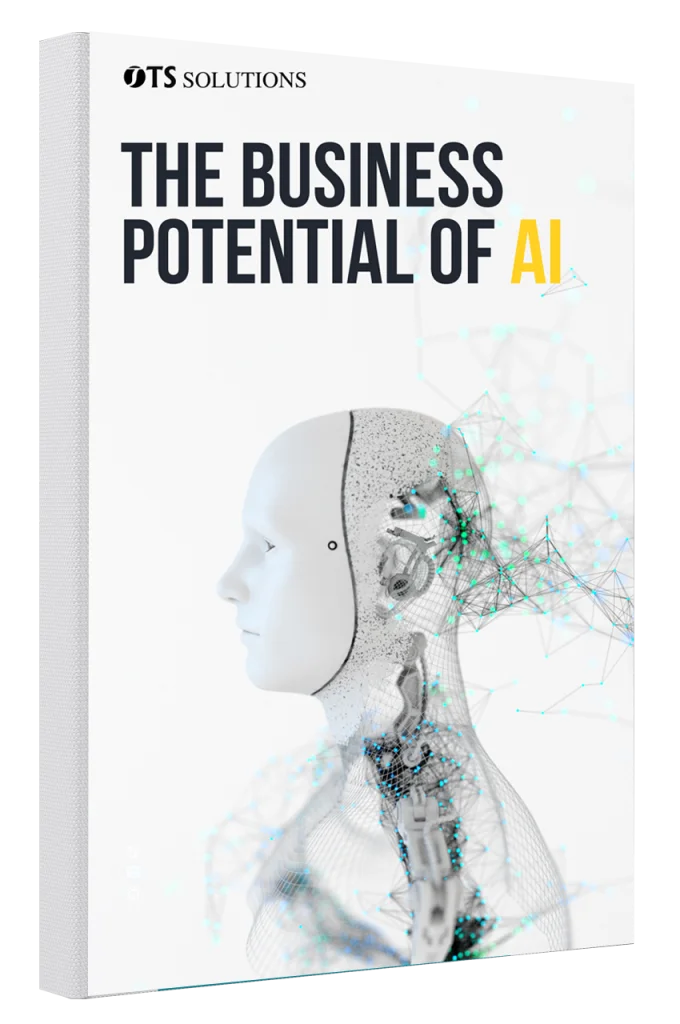What is the Role of AI in the Manufacturing Industry?
AI is poised to reshape traditional manufacturing practices and drive the sector towards increased productivity, quality, and competitiveness. This article aims to provide the role of AI in the manufacturing industry, highlighting the key areas where AI is making a substantial impact and discussing the challenges and prospects associated with its implementation.
Overview of AI in the Manufacturing Industry
AI technologies, such as machine learning and robotic process automation, can enhance manufacturing operations by increasing efficiency, improving quality control, and reducing costs. With the ability to analyze data in real-time and make quick decisions, AI systems can optimize production processes, predict maintenance needs, and minimize downtime. This can significantly improve overall productivity and ensure the timely delivery of products.
Additionally, AI-powered robots can automate repetitive and dangerous tasks, providing a safer working environment for employees and allowing them to focus on more complex and creative tasks. As AI technologies continue to advance and become more accessible, the future of manufacturing is likely to be characterized by highly automated, intelligent, and efficient production systems.
However, the widespread implementation of AI in manufacturing also raises concerns about the potential displacement of human workers. There is a fear that AI technologies may replace jobs traditionally performed by humans, leading to unemployment and income inequality. To mitigate this, manufacturers need to invest in upskilling and reskilling programs to enable workers to transition into new roles that require advanced technological skills.
Furthermore, collaboration between humans and AI systems should be encouraged, with AI acting as a tool to augment human capabilities rather than replace them entirely. By embracing the integration of AI in manufacturing and ensuring a balanced approach, the future of the industry can be one of increased productivity, improved quality, and sustainable growth.
Importance of AI in Manufacturing
Artificial Intelligence (AI) has revolutionized several industries, and the manufacturing sector is no exception. AI in the manufacturing industry encompasses a range of technologies, such as machine learning, robotics, and cognitive computing. These advancements have significantly enhanced productivity, safety, and accuracy in manufacturing processes. AI-powered robots can perform repetitive and dangerous tasks, minimizing human intervention.
Machine learning algorithms analyze vast amounts of data to optimize production processes, predict maintenance needs, and identify potential defects. Additionally, cognitive computing enables machines to understand and interact with humans, improving communication and collaboration within manufacturing facilities. Overall, the integration of AI in the manufacturing industry has unlocked new possibilities for automation, efficiency, and innovation.
Artificial Intelligence (AI) plays a crucial role in the manufacturing industry by revolutionizing processes and enhancing efficiency. With the ability to analyze vast amounts of data and recognize patterns, AI helps in optimizing production, predicting maintenance requirements, and reducing downtime.
Moreover, it enables automation of repetitive tasks, leading to increased productivity and improved product quality. AI-powered algorithms assist in better demand forecasting, inventory management, and supply chain optimization, thereby minimizing costs and avoiding stockouts. By integrating AI into the manufacturing industry, companies can gain a competitive edge, streamline operations, and achieve higher customer satisfaction.
What are the Benefits of using AI in Manufacturing?
Artificial Intelligence (AI) has revolutionized the manufacturing industry, offering numerous benefits that have improved efficiency, productivity, and overall profitability.
Improved Accuracy and Quality Control
One significant advantage of AI in manufacturing is the ability to improve accuracy and quality control. With AI-powered machines and robots, manufacturers can minimize human errors, as these systems are designed to perform tasks with precision, consistency, and attention to detail. This ensures that product quality remains consistent throughout the production process, reducing defects and subsequently decreasing the costs associated with rework or returns.
Additionally, AI can detect defects in real-time, enabling manufacturers to address issues promptly and prevent defective products from reaching consumers.
Production Efficiency
Another key benefit of AI in manufacturing is its capacity to enhance production efficiency. AI algorithms can analyze vast amounts of data quickly and identify patterns or trends that might otherwise go unnoticed by humans. This allows manufacturers to optimize their production processes, making them more streamlined, cost-effective, and time-efficient. For instance, AI can assist in inventory management by predicting demand patterns, enabling manufacturers to plan their production schedules accordingly and avoid excessive inventory holding.
Furthermore, AI-powered machines and robots can perform tasks faster than humans, minimizing bottlenecks and maximizing productivity. By harnessing the power of AI, manufacturers can achieve higher production rates, reduce downtime, and increase their profitability.

How AI is Transforming the Manufacturing Industry
1. Automation and Robotics
Automation and Robotics AI have revolutionized the manufacturing industry by streamlining processes, enhancing efficiency, and increasing productivity. These technologies combine the power of artificial intelligence with robotics to perform tasks that were once only possible with human intervention. With automation, repetitive and monotonous tasks such as assembly line manufacturing, material handling, and quality control are now efficiently performed by robots.
Moreover, AI in manufacturing enables machines to learn from data and make informed decisions, improving the accuracy and speed of operations. As a result, manufacturers can achieve higher levels of precision, reduce errors, and increase their output, making automation and Robotics AI indispensable components of modern manufacturing.
2 Predictive Maintenance
Predictive maintenance solutions for the manufacturing industry have immensely transformed this sector. With the ability to monitor and analyze vast amounts of data in real-time, AI systems can accurately predict potential equipment failures, enabling manufacturers to proactively address maintenance needs and avoid costly downtime.
By leveraging machine learning algorithms and sensor data, these AI systems can identify patterns and deviations that may indicate impending malfunctions or breakdowns, allowing manufacturers to schedule maintenance activities at optimal times. This not only improves productivity and efficiency but also reduces overall maintenance costs. As the manufacturing industry continues to embrace AI, predictive maintenance technology is set to become a crucial tool in ensuring uninterrupted operation and maximizing equipment longevity.
3. Quality Control and Inspection
Quality control is an essential aspect of manufacturing, ensuring that products meet the necessary standards and specifications. With the advancement of technology, the integration of Inception AI in manufacturing has revolutionized quality control processes. Inception AI uses machine learning algorithms to analyze data and identify patterns, allowing for real-time monitoring and detection of defects.
This technology not only helps manufacturers detect and eliminate product flaws but also enables predictive maintenance, reducing downtime and maximizing efficiency. The application of Inception AI in manufacturing not only enhances quality control but also increases productivity, making it a vital component of the modern manufacturing industry.
4. Supply Chain Optimization
Supply chain optimization AI in manufacturing refers to the implementation of artificial intelligence technologies to enhance efficiency and effectiveness within the production process. By leveraging AI algorithms, manufacturers can analyze vast amounts of data related to inventory management, logistics, and demand forecasting, resulting in smarter decision-making and improved planning.
This technology enables companies to identify bottlenecks, optimize routes, and reduce costs throughout the supply chain, leading to streamlined operations, increased productivity, and enhanced customer satisfaction. Overall, AI plays a crucial role in transforming traditional manufacturing practices, empowering companies to stay competitive in an ever-evolving marketplace.
5. Product Design and Optimization
Product design and optimization AI in manufacturing has revolutionized the way products are developed and produced. With the help of advanced algorithms and machine learning techniques, AI can analyze vast amounts of data and provide valuable insights to designers, enabling them to create more efficient and innovative products.
Additionally, AI can optimize manufacturing processes by identifying potential bottlenecks and suggesting improvements, leading to increased productivity and cost reduction. This technology has the potential to enhance every aspect of the manufacturing industry, from reducing time to market to enhancing product performance, driving the growth and competitiveness of businesses in the global market.
6. Demand Forecasting
Demand forecasting AI is revolutionizing the manufacturing industry by allowing companies to accurately predict and meet consumer demands. By harnessing the power of artificial intelligence, manufacturers can analyze vast amounts of historical data, market trends, and customer preferences to forecast future demand with remarkable precision.
This technology enables manufacturers to optimize their production, reduce wastage, and minimize stockouts, increasing profitability and customer satisfaction. By leveraging demand forecasting AI, manufacturers can stay one step ahead of the competition, adapt to dynamic market conditions, and ensure efficient resource allocation, making it an indispensable tool in the modern manufacturing landscape.
Which AI Technologies are Driving Innovation in Manufacturing?
1. Machine learning
Machine learning has become increasingly prevalent in the manufacturing industry, revolutionizing the way companies operate. By analyzing vast amounts of data, machines can learn and adapt in real-time, leading to more efficient and accurate production processes. This technology enables manufacturers to optimize their supply chains, improve quality control, and enhance overall productivity.
With its ability to automate and streamline operations, machine learning proves to be a meaningful change for the manufacturing industry, paving the way for increased competitiveness and profitability.
2. Computer vision
Computer vision has become an essential tool in the manufacturing industry, revolutionizing processes and improving efficiency. By leveraging advanced algorithms and machine learning techniques, computer vision allows manufacturers to automate tasks such as quality control, inspection, and object recognition. This technology enables real-time monitoring of production lines, identifying defects or anomalies with incredible precision and speed.
Furthermore, computer vision plays a vital role in enabling robotic systems to perform complex tasks, reducing human intervention, and increasing productivity. With its ability to process vast amounts of visual data, computer vision has undoubtedly transformed the manufacturing industry, enhancing accuracy, reducing costs, and ensuring higher product quality.
3. Natural Language Processing
Natural language processing (NLP) has emerged as a groundbreaking technology in the manufacturing industry, revolutionizing the efficiency and productivity of various processes. By utilizing advanced algorithms and machine learning techniques, NLP enables machines to understand and interpret human language, facilitating seamless communication between humans and machines. In the manufacturing industry, NLP is employed to analyze the vast amount of data generated by sensors, production lines, and customer feedback, thereby enabling manufacturers to make informed decisions and optimize operations.
Moreover, NLP enables the automation of routine tasks, such as quality control, inventory management, and maintenance schedules, leading to significant cost savings and improved overall efficiency. Therefore, through the application of NLP, the manufacturing industry can leverage the power of natural language understanding to unlock new opportunities for growth and innovation.
4. IoT
The advent of the Internet of Things (IoT) has brought about unprecedented opportunities and advancements in various sectors, with the manufacturing industry being no exception. IoT in the manufacturing industry refers to the integration of internet-connected devices and sensors to optimize production processes, enhance automation, and increase efficiency.
This transformative technology enables manufacturers to monitor and analyze real-time data, facilitate predictive maintenance, improve supply chain management, and enhance overall product quality.
By connecting machines, equipment, and tools through IoT, manufacturers can achieve streamlined operations, reduced downtime, better resource utilization, and higher productivity and profitability. The AI implementation in the manufacturing industry signifies a paradigm shift towards intelligent, interconnected systems that offer immense potential for growth and innovation.
4. Big data analytics
Big data analytics has revolutionized the manufacturing industry by enabling businesses to efficiently collect, analyze, and interpret vast amounts of data generated at every stage of the production process. With the help of advanced technologies and algorithms, manufacturers can identify patterns, trends, and anomalies in data, allowing them to optimize operational efficiency, reduce costs, and enhance product quality.
Moreover, big data analytics provides manufacturers with valuable insights into customer preferences and market demand, enabling them to make data-driven decisions for product development, customization, and supply chain management. By harnessing the power of big data analytics, the manufacturing industry has gained a competitive edge in today’s data-driven world.
Implementing AI in Manufacturing: Challenges and Considerations
1. Data collection and management
Data collection and management play a crucial role in the manufacturing industry, enabling companies to optimize their operations and make informed decisions. In this sector, data is collected from various sources, such as sensors, machines, and production lines, to monitor and analyze key performance indicators (KPIs) like production efficiency, quality control, and inventory management.
By leveraging advanced technologies like the Internet of Things (IoT), cloud computing, and artificial intelligence (AI), manufacturers can manage vast amounts of data in real-time, enabling them to promptly identify and resolve issues, predict maintenance requirements, and streamline processes. Effective data collection and management not only enhances productivity and reduces costs but also allows manufacturers to stay competitive in an increasingly digitized and interconnected world.
2. Data security and privacy
Data security and privacy in the manufacturing industry are of utmost importance in today’s digital world. With the growing reliance on technology and interconnected systems, there is a higher risk of cyber threats and unauthorized access to sensitive information. Manufacturers must ensure robust measures are in place to protect their valuable data, including personal employee information, proprietary designs, and customer data.
Additionally, compliance with relevant regulations, such as the General Data Protection Regulation (GDPR), is crucial to maintaining consumer trust and transparency. By implementing strong data security protocols, manufacturers can safeguard their operations, maintain a competitive edge, and uphold their commitment to privacy and confidentiality.
3. Workforce Adaptation and Training
In the rapidly evolving manufacturing industry, workforce adaptation and training play a crucial role in ensuring competitiveness and success. As recent technologies and automation revolutionize traditional manufacturing processes, it is essential for employees to continuously update their skills and knowledge. Companies must invest in comprehensive training programs to equip their workforce with the necessary tools and expertise to embrace innovative technologies and remain agile in an ever-changing industry landscape.
By fostering a learning culture and providing opportunities for upskilling, businesses can empower their employees to harness the potential of emerging technologies, increase productivity, and drive innovation. Workforce adaptation and training are not just vital for individual career progression, but also for the overall growth and sustainability of the manufacturing industry.
4. Integration with Existing Systems
AI integration with existing systems in manufacturing is revolutionizing the industry by streamlining processes and enhancing efficiency. By utilizing advanced algorithms, machine learning, and data analytics, AI enables manufacturers to automate complex tasks, optimize supply chains, and improve product quality.
The integration of AI into existing systems allows manufacturers to continuously monitor and analyze data from multiple sources, leading to better decision-making and predictive maintenance. Moreover, AI-powered robotics and smart machinery improve productivity and safety on the factory floor. As AI continues to advance, it will undoubtedly play a vital role in transforming manufacturing, providing companies with a competitive edge, and paving the way for a more innovative and sustainable future.
What is the Future of AI in the Manufacturing Sector?
The future of AI in manufacturing is expected to be transformative, revolutionizing the industry in many ways. AI technologies, such as machine learning and robotic process automation, can enhance manufacturing operations by increasing efficiency, improving quality control, and reducing costs.
With the ability to analyze data in real-time and make quick decisions, AI systems can optimize production processes, predict maintenance needs, and minimize downtime. This can significantly improve overall productivity and ensure the timely delivery of products.
Additionally, AI-powered robots can automate repetitive and dangerous tasks, providing a safer working environment for employees and allowing them to focus on more complex and creative tasks. As AI technologies continue to advance and become more accessible, the future of manufacturing is likely to be characterized by highly automated, intelligent, and efficient production systems.
However, the widespread implementation of AI in manufacturing also raises concerns about the potential displacement of human workers. There is a fear that AI technologies may replace jobs traditionally performed by humans, leading to unemployment and income inequality. To mitigate this, manufacturers need to invest in upskilling and reskilling programs to enable workers to transition into new roles that require advanced technological skills.
Furthermore, collaboration between humans and AI systems should be encouraged, with AI acting as a tool to augment human capabilities rather than replace them entirely. By embracing the integration of AI in manufacturing and ensuring a balanced approach, the future of the industry can be one of increased productivity, improved quality, and sustainable growth.
Conclusion:
In conclusion, the role of AI in the manufacturing industry is one of optimization, insights, and adaptation. From supply chain optimization to real-time monitoring and analytics, AI empowers manufacturers to make data-driven decisions, streamline operations, and stay ahead of the curve. While challenges and risks exist, companies can navigate these hurdles by prioritizing data security and investing in workforce training. The future of AI in manufacturing is promising, with emerging trends and technologies poised to transform the industry for the better.
Revolutionize Your Manufacturing Processes with Digital Transformation
Ready to propel your manufacturing business into the future? Our digital transformation services optimize operations, enhance efficiency, and ensure competitiveness. Experience the power of Industry 4.0. Let’s shape the future of manufacturing together.
Frequently Asked Questions
1. What are the Potential risks of implementing AI in Manufacturing?
Ans) The potential risks of implementing AI in manufacturing are multifaceted and require careful consideration. Firstly, there is a risk of job displacement and loss of employment for human workers as AI technology takes over repetitive and mundane tasks. This can lead to socioeconomic challenges and income inequalities. Secondly, AI systems are susceptible to errors and malfunctions, which can result in defective products and compromised safety measures.
2. What skills are required to implement AI in the manufacturing industry?
Ans) Implementing AI in manufacturing requires a specific set of skills to ensure the successful integration and optimization of this advanced technology. Firstly, a sound understanding of machine learning algorithms and data analytics is essential as these enable the creation of AI models capable of processing substantial amounts of data and providing valuable insights.
Additionally, proficiency in programming languages such as Python or R is necessary to develop and implement AI algorithms. Domain knowledge in manufacturing is crucial to identify and prioritize areas where AI can bring the most significant impacts. Finally, strong problem-solving and critical thinking skills are required to address challenges that may arise during the implementation process, ensuring the seamless integration of AI into the manufacturing environment.
3. What are some real-world examples of AI in manufacturing?
Ans) Some real-world examples of AI in manufacturing:
- Artificial Intelligence in Logistics.
- AI Robots – Robotic Process Automation.
- Management of Supply Chains with Artificial Intelligence.
- AI Autonomous Vehicles.
- AI for Factory Automation.
- AI for IT operations.
- Design and Production With AI
4. How to choose the best AI solution for my manufacturing plant?
Ans) When it comes to choosing the best AI solution for a manufacturing plan, several factors should be taken into consideration.
Firstly, one should identify the specific goals and challenges of their manufacturing process, such as improving efficiency, reducing downtime, or optimizing quality control.
Next, thorough research should be conducted on different AI technologies available in the market, assessing their compatibility with existing systems, scalability, and potential for integration. Moreover, one should consider the record of accomplishment and reputation of AI solution providers, seeking recommendations and feedback from other manufacturers who have implemented similar manufacturing automation solutions. Additionally, evaluating the ease of use, training requirements, and long-term support offered by the AI solution provider is crucial.
Lastly, it is advisable to pilot the chosen AI solution on a small scale before fully integrating it into the manufacturing plan, to ensure its effectiveness and practicality in achieving the desired outcomes.
5. Can AI reduce production costs?
Ans) Yes, AI can reduce production costs.
Related Blogs:








